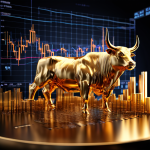Human Psychology Books Can’t Compete: Markets Teach the Real Lessons
Jan 10, 2025
Why waste time reading human psychology books when the market already teaches you everything you need to know about real-world behaviour? Those who preach decision-making and cognitive bias theories often stand on the sidelines, pushing out sterile ideas with no consequence if they’re wrong. The market, however, is a relentless teacher, with rewards and punishments that are swift and real. Investors with “skin in the game,” like Nassim Nicholas Taleb, understand this intimately—living through market cycles teaches you lessons no textbook ever will. The bold truth is this: the market is the ultimate psychology book, and the stakes are too high to rely on anyone who isn’t directly affected by the risks.
The Market is the Ultimate Behavioral Playground
If you truly want to understand human psychology, don’t look to academic theorists who shield themselves behind data and charts. Look at the traders, the investors, and the hedge fund managers who risk everything when they make a decision. They’re the ones who understand fear, greed, euphoria, and panic—because they experience it daily. The market is where these emotions play out in real-time, and unlike theoretical models, there are no reset buttons when something goes wrong.
Take the example of George Soros, who didn’t just theorize about market bubbles and crashes; he made billions by betting against them. When he shorted the British pound, Soros profited during the 1992 Black Wednesday crash. His decision was not based on a theoretical construct but on his lived understanding of mass psychology and how it shapes markets. This is the kind of “skin in the game” expertise you can’t learn from a classroom.
Taleb’s Wisdom: Beware of Theorists Without Consequences
Nassim Nicholas Taleb, the acclaimed author of The Black Swan and Skin in the Game, has made a career of exposing the disconnect between ivory-tower academics and real-world practitioners. He argues that people who propose ideas without facing the risks of those ideas are fundamentally dangerous. Taleb says, “Intellectuals who are not bounded by the consequences of their actions are not only wrong—they’re often catastrophically wrong.”
This distinction is crucial in the financial markets. Academic theories, such as those surrounding efficient markets or the psychological biases that supposedly dictate investor behaviour, often crumble when faced with the brutal realities of the market. While a professor may theorize about how investors should react under pressure, traders and portfolio managers know what happens when billions of dollars are on the line. They don’t just theorize about loss aversion; they feel it.
The Market as the True Test of Cognitive Biases
Take behavioural economics’ most well-known concept: loss aversion. Psychologists like Daniel Kahneman and Amos Tversky theorized that humans are more sensitive to losses than gains. While this principle holds some truth, the market provides a deeper, more nuanced lesson. Yes, fear of loss is powerful, but those who master their fear—not by reading about it but by living through it—are the ones who succeed.
Consider the example of Ray Dalio, founder of Bridgewater Associates. Dalio’s investment philosophy is deeply rooted in understanding human nature but not how behavioural economists teach. Dalio learned about fear and loss the hard way, nearly going bankrupt in the early days of his career. This experience taught him more about psychology than any book ever could. Dalio turned that hard-earned wisdom into investment principles that focus on navigating uncertainty, mastering emotions, and embracing reality, no matter how harsh.
Real-World Examples Trump Theoretical Constructs
The global markets were chaotic when the COVID-19 pandemic struck in early 2020. Stock prices plummeted, entire economies ground to a halt, and uncertainty reigned supreme. In this environment, countless investors, armed with their psychological theories and economic models, panicked. But those with real-world experience, like Bill Ackman, saw the opportunity. Ackman famously turned a $27 million bet against the market into $2.6 billion by predicting the crash and reinvested in the recovery phase, pocketing additional profits.
This isn’t a theory. It’s not speculation. It’s action. Someone directly exposed to the market’s risks and rewards can only make these decisions. Theorists can explain investor behaviour all they want. Still, only those deeply involved in the market, who feel the emotional highs and lows themselves, can truly navigate through such unprecedented events.
Theorists Don’t Understand Market Chaos
The problem with relying on theories from human psychology is that they often simplify the complexity of the market. Markets are chaotic, driven by millions of participants, each with emotions, goals, and timeframes. Academic models tend to ignore the unpredictability and the wild swings in sentiment that real traders face daily.
John Maynard Keynes once said, “The market can remain irrational longer than you can remain solvent.” This insight gets to the heart of why relying on sterile psychological theories is dangerous. Markets don’t move in neat patterns, and human behaviour in markets doesn’t always follow a predictable path. Trying to apply academic models in a chaotic environment can lead to disastrous outcomes, as Keynes understood all too well.
Forget Theory: Embrace Skin in the Game
The most valuable lessons in psychology come not from books but from your own experiences in the market. Investing in real-time forces you to confront your emotions—fear, greed, and regret—in a way that theory never can. Every loss is a lesson, and every gain teaches you something about risk management and timing.
Those who have learned the hard way—who have experienced the market’s euphoria and its devastation—are the ones who have real wisdom to share. Take Stanley Druckenmiller, for example. Druckenmiller once said, “I’ve learned many things from [George] Soros, but perhaps the most significant is that it’s not whether you’re right or wrong that’s important, but how much money you make when you’re right and how much you lose when you’re wrong.” This insight, born from experience, should guide your understanding of market psychology, not the tidy conclusions found in academic studies.
Lessons from the Market: Hard-Earned, Not Hypothetical
Here’s the real takeaway: The Market is the only psychology book you need. It doesn’t deal with hypotheticals or controlled environments. It deals in billions of dollars, people’s life savings, and economies that hang in the balance. When you invest, you’re not just playing with numbers—you’re testing your psychological strength against the rest of the world. Every trade is a lesson in fear, greed, discipline, and emotional control.
Stop wasting time on abstract theories written by those who never put their own money at risk. Instead, pay attention to the lessons the market teaches you every day. You’ll find the true wisdom of human psychology in the volatility, the fear, and the moments of irrational exuberance.
Conclusion: The Market is Your Greatest Teacher
Skip the human psychology books and ignore the theorists who never risked a dollar in the markets. Instead, learn from those with skin in the game—people like George Soros, Ray Dalio, Stanley Druckenmiller, and Bill Ackman. They’ve navigated the highs and lows, mastered their emotions, and made fortunes by understanding the complex psychology that drives markets.
The next time you feel the urge to dive into a theory-heavy psychology book, remember that the best lessons are learned in the field, not the classroom. With all its chaos and unpredictability, the market is the ultimate teacher. It tests your psychological limits daily, and the rewards for mastering it are far greater than any theory can offer.
Perspectives Explored: Unveiling New Insights and Ideas













